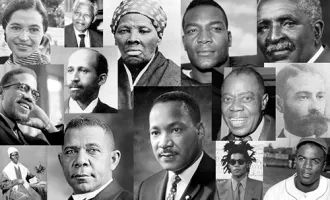This Date in UCSF History: Medical Heroin?
Originally published in Synapse on Dec. 1, 1977.
Advocates of decriminalizing heroin received a powerful shot in the arm from the White House this month when President Carter authorized a federal panel to oversee research into the medicinal uses of heroin and marijuana.
Such studies have been stifled in the U.S. for over half a century because of the political controversy surrounding these drugs, says Dr. Peter Bourne, President Carter’s special assistant on health issues.
But now Bourne has received the full backing of the President to loosen federal restrictions on researchers wanting to explore the potential use of two drugs — heroin to kill pain and marijuana to reduce nausea — in treating terminally ill cancer patients. Considered one of the most powerful analgesics known to science, heroin is used in Great Britain and other countries to help dying patients alleviate pain.
British physicians also administer it as a cough suppressor for people with incurable lung cancer.
British Some British hospitals give heroin orally to the terminally ill in the form of “Brompton’s cocktail” — a mixture of heroin, cocaine, syrup flavoring and other
ingredients.
The “cocktail” is also gaining popularity in U.S. hospitals, but in this country morphine is used in the drink instead of heroin. Although morphine, codeine and other narcotics are widely used as pain killers in the U.S., diacetyl-morphine — the chemical name for heroin — is deemed unsafe even under medical supervision.
“Heroin is believed to be two to five times more powerful than morphine” says Professor Arnold Trebach, who heads the Committee on Treatment of Intractable Pain, a recently formed group that has lobbied for the patient’s right to receive heroin if suffering from a painful ; disease, injury or burn.
“And,” Trebach adds, “there seems to be no doubt that heroin induces less nausea and allows more freedom of mobility than morphine.”
Among the committee’s advisors is the widow of conservative columnist Stewart Alsop, who died recently of cancer.
Trebach — professor of justice at the American University in Washington, D.C. — is quick to point out that his organization has nothing to do with the movement to legalize laetrile.
“Our committee deals with the issue of care, not cure,” he says. “Pain is an obscenity,” contends Trebach, who lost his wife to cancer a year ago. “I honestly believe there is no need for a person to be in severe pain when terminally ill.”
Although he praised the Carter Administration as “the most enlightened on this issue in history,” Trebach said his committee plans to s ring suit against the federal government to make heroin immediately available for medicinal use.
“The only people who can’t get heroin are people who are dying,” charges the Rt. Rev. C. Edward Crowther, assistant bishop for the Episcopal diocese of California and another advisor to the Committee on Treatment.
“I am not suggesting that heroin be legalized for everybody; only for people with terminal illnesses,” he adds. “The question of addiction is irrelevant when you are dealing with dying patients.”
Other committee members, however, are hopeful that President Carter’s decision will open the door to research on the decriminalization of heroin for the care of drug addicts. “Although the treatment of intractable pain is a completely different issue,” says committee director Trebach, “I am personally in favor of making heroin available to doctors who then may make the choice to use it for addicts.”
Trebach has conducted extensive studies of Britain’s liberal narcotics policy that allows government-run clinics to provide low-cost heroin to several dozen registered addicts.
He describes the British program as a “damn good system.”
But some U.S. opponents of heroin maintenance claim the British have failed to stem the tide of heroin addiction now sweeping Western Europe.
Others argue that the U.S. government should not adopt the role of the pusher.
Those favoring a British type heroin policy predict that legalization would actually reduce America’s spiraling crime rate.
If the drug were passed out free, they contend, addicts would not have to steal or engage in illicit activities to pay for their SIOO-a-day habits.
The surprise announcement by the White House to promote heroin research came on the heels of mounting pressure from some drug abuse workers and civic leaders who believe heroin maintenance could help cure this country’s addict population, now estimated at well over 500,000.
Within the last several months, for example, the Ohio House of Representatives passed a bill authorizing an experimental heroin maintenance program there; and in California the state bar association has recommended a legislative study of such a project.
“The most damaging thing about heroin is that people see it as the most demonic of drugs,” says Dr. Norman Zinberg, professor of psychiatry at Harvard Medical School and senior consultant to the privately funded Drug Abuse Council in Washington, D.C.
“If heroin were demythologized it would be of enormous value,” Zinberg adds. “Although heroin maintenance would be very difficult to implement in this country, I would certainly like to play a few games with a small-scale maintenance experiment.”
Presidential health advisor Bourne says he is willing to consider such a controlled experiment, although he recently told a group of drug experts that Jimmy Carter has rejected heroin maintenance as a “defeatist strategy.”
Meanwhile, Dr. Bourne, along with Arthur Upton of the National Cancer Institute and Robert Butler of the National Institute on Aging, are creating a special panel within the National Institute of Health to assist researchers trying to get contracts to study heroin and other illicit drugs.
Such research is already planned at New York’s Sloan Kettering Cancer Center, which expects to receive over SI million during a five-year period from the National Institute of Drug Abuse. “What Dr. Bourne wants to do,” says his White House press aide Ellen Metsky, “is to see that we expand our research of drugs we haven’t studied before. “Studying the use of heroin for addicts may be down the road somewhere,” Metsky adds. “But right now we are just concerned with cancer patients.”



